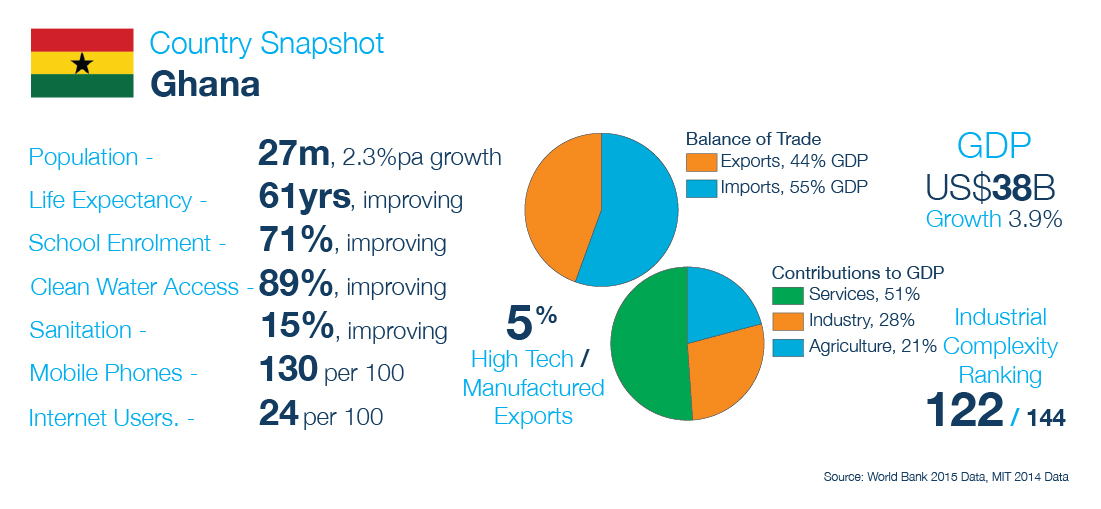Ghana

The Republic of Ghana, or Ghana for short, is a presidential republic with its capital being Accra. The name Ghana originates from the medieval West African kingdom of the same name, but whose location was actually further north than the modern country.
Ghana’s legal system is a mix of English common law and customary law, the result of British colonisation. Ghana was formed from the merger of the British colony of the Gold Coast and the Togoland trust territory. In 1957 Ghana became the first sub-Saharan country in colonial Africa to gain its independence from Europe but experienced a series of coups until the constitution allowing multiparty politics was restored in 1992. Nana Addo Dankwa Akufo-Addo won the office of the President of Ghana and took office on the 7th of January, 2017. He is successor to John Dramani Mahama, and served as Attorney General from 2001 to 2003 and as Minister for Foreign Affairs from 2003 to 2007.
Ghana has a market-based economy with relatively few policy barriers to trade and investment in comparison with other countries in the region, and Ghana is well-endowed with natural resources. Agriculture accounts for nearly one-quarter of GDP and employs more than half of the workforce, mainly small landholders. The services sector accounts for about half of GDP. Gold and cocoa exports, and individual remittances, are major sources of foreign exchange. Expansion of Ghana’s nascent oil industry has boosted economic growth, but the recent oil price weakness reduced by half Ghana’s 2015 oil revenue. As of 2015, the biggest single economic issue facing Ghana is the lack of consistent electricity.
Approximately 57% of Ghana’s population under the age of 25. Increased life expectancy in Ghana, due to better health care, nutrition, and hygiene, and reduced fertility has increased Ghana’s share of elderly persons; Ghana’s proportion of persons aged 60+ is among the highest in sub-Saharan Africa. Poverty has declined in Ghana, but it remains pervasive in the northern region, which is susceptible to droughts and floods and has less access to transportation infrastructure, markets, fertile farming land, and industrial centers. The northern region also has lower school enrollment, higher illiteracy, and fewer opportunities for women.
Ghana was a country of immigration in the early years after its 1957 independence, attracting labor migrants largely from Nigeria and other neighbouring countries to mine minerals and harvest cocoa – immigrants composed about 12% of Ghana’s population in 1960. In the late 1960s, worsening economic and social conditions discouraged immigration, with many immigrants being expelled.
Source: US CIA ‘The World Fact Book’.
